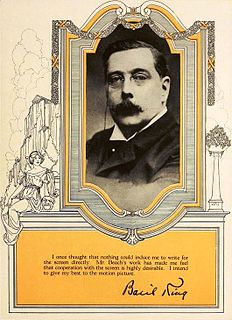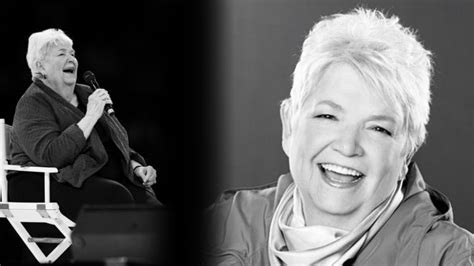A Quote by Guy de Maupassant
We are accustomed to use our eyes only with the memory of what other people before us have thought about the object we are looking at.
Related Quotes
We live in a wonderful world that is full of beauty and charm and adventure. There is no end to the adventures that we can have if only we seek them with our eyes open. So many people seem to go about their life's business with their eyes shut. Indeed, they object to other people keeping their eyes open. Unable to play themselves, they dislike the play of others.
The only reason we don't open our hearts and minds to other people is that they trigger confusion in us that we don't feel brave enough or sane enough to deal with. To the degree that we look clearly and compassionately at ourselves, we feel confident and fearless about looking into someone else's eyes.
Suppose the looking glass smashes, the image disappears, and the romantic figure with the green of forest depths all about it is there no longer, but only that shell of a person which is seen by other people - what an airless, shallow, bald, prominent world it becomes! A world not to be lived in. As we face each other in omnibuses and underground railways we are looking into the mirror that accounts for the vagueness, the gleam of glassiness, in our eyes.
God pursues us into whatever dark place we've landed and behind whatever locked door holds us in. He holds our unwashed and dirty hands and models how He wants us to pursue each other And He says to ordinary people like me and you that instead of closing our eyes and bowing our heads, sometimes God wants us to keep our eyes open for people in need, do something about it, and bow our whole lives to Him instead.
It's hard to tell / if we close our eyes or if night / opens in us other starred eyes, / if it burrows into the wall of our dream / till some other door opens. / But the dream is only the flitting costume of one moment, / is spent in one beat / of the darkness, / and falls at our feet, cast off / as the day stirs and sails away with us.
Memory is therefore, neither Perception nor Conception, but a state or affection of one of these, conditioned by lapse of time. As already observed, there is no such thing as memory of the present while present, for the present is object only of perception, and the future, of expectation, but the object of memory is the past. All memory, therefore, implies a time elapsed; consequently only those animals which perceive time remember, and the organ whereby they perceive time is also that whereby they remember.
God is with us to be utilised. His Power, His Love, His Thought, His Presence, must be at our disposal, like other great forces, such as sunshine and wind and rain. We can use them or not, as we please. That we could use them to their full potentiality is, of course, not to be thought of; but we can use them in proportion to our ability.
And just as He appeared before the holy Apostles in true flesh, so now He has us see Him in the Sacred Bread. Looking at Him with the eyes of their flesh, they saw only His Flesh, but regarding Him with the eyes of the spirit, they believed that He was God. In like manner, as we see bread and wine with our bodily eyes, let us see and believe firmly that it is His Most Holy Body and Blood, True and Living.For in this way our Lord is ever present among those who believe in him, according to what He said: "Behold, I am with you all days even to the consummation of the world."
If you look into their [chimpanzees] eyes, you know you're looking into a thinking mind. They teach us that we are not the only beings with personalities, minds capable of rational thought, altruism and a sense of humor. That leads to new respect for other animals, respect for the environment and respect for all life.
Looking for the essence of beauty is comprehending and appreciating that quality in an object which is fairer and better than only what our eyes see or our ears hear, whether that be a patch of blue in an overcast sky, the fleeting laughter from a voice we love, or something as unexpected as the rainbow colors in a spot of oil on the driveway.
All we have to believe with is our senses, the tools we use to perceive the world: our sight, our touch, our memory. If they lie to us, then nothing can be trusted. And even if we do not believe, then still we cannot travel in any other way than the road our senses show us; and we must walk that road to the end.
We don’t go further than what Marx called the exchange value of the actual object - we don’t think about the relations that that object embodies - and were important to the production of that object whether it’s our food or our clothes or our I-pads or all the materials we use to acquire an education at an institution like this. That would really be revolutionary to develop a habit of imagining the human relations and non human relations behind all of the objects that constitute our environment.
Own only what you can always carry with you: know languages, know countries, know people. Let your memory be your travel bag. Use your memory! Use your memory! It is those bitter seeds alone which might sprout and grow someday. Look around you - there are people around you. Maybe you will remember one of them all your life and later eat your heart out because you didn't make use of the opportunity to ask him questions. And the less you talk, the more you'll hear.
Many aspects of our screen-bound lives are bad for our social skills simply because we get accustomed to controlling the information that comes in, managing our relationships electronically, deleting stuff that doesn't interest us. We edit the world; we select from menus; we pick and choose; our social 'group' focuses on us and disintegrates without us. This makes it rather confusing for us when we step outdoors and discover that other people's behaviour can't be deleted with a simple one-stroke command or dragged to the trash icon.






































